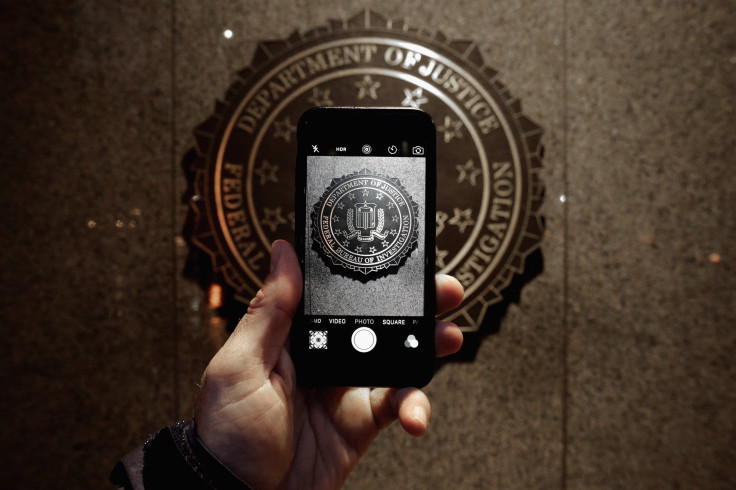Apple Vs. FBI: Will iPhone 7 Sales Suffer?

Apple Inc.’s fight with the FBI couldn’t come at a worse time. The company is expected to post its first quarterly decline in iPhone sales when the current reporting period wraps up March 26, leaving investors looking to the iPhone 7 to boost profits later in 2016. Wall Street’s misgivings around sales of Apple’s flagship product already have the company’s stock hovering at $95, down from $132.17 a year ago.
Although U.S. consumers are deeply divided in the debate over encryption and privacy, a significant portion — 51 percent, according to Pew Research Center — stand behind the FBI in its quest to force Apple to unlock the iPhone 5C that belonged to Syed Rizwan Farook. The terrorist was killed after taking part in a Dec. 2 attack in San Bernardino, California, that left 14 people dead and 22 seriously injured. In a separate Reuters poll, 46 percent of Americans said they support Apple’s position to defy the court order, while 35 percent said they disagree.
Even as many U.S. consumers line up in opposition to Apple, financial analysts and market researchers say the company’s fight with the federal government is unlikely to hurt sales of products and services — including the anticipated 4-inch iPhone 5se and the iPhone 7.
Investment firm PiperJaffray surveyed about 1,000 people in the U.S. on their perceptions of Apple’s brand in the face of its fight with the FBI. In a note to investors this week, analyst Gene Munster wrote about the results: “Net-net the data showed that there was no brand impact from Apple’s decision to refuse to unlock an encrypted iPhone, with essentially equal numbers of consumers viewing the brand more positively and less positively with the rest viewing it the same or unaware of the situation.”
Munster concluded: “Regardless of the outcome of the dispute, it will not have a meaningful impact on Apple's brand.”
Longtime Apple analyst Tim Bajarin agrees. “I don’t think [Apple] would be impacted at all,” says Bajarin, who is president of the technology consultancy Creative Strategies. However the battle pans out, industry-watchers say the features of Apple’s devices overshadow consumers’ privacy concerns when the time comes to make new purchases. “In the end, people are going to buy the iPhone for what it does and its capability, not because Apple wins or loses,” says Bajarin.
Analysts don’t see the legal fight having an appreciable impact on Apple’s business overseas either. In 2015, the company generated more than half of its $233.7 billion in revenue outside the U.S. Most analysts agree that even a ruling against Apple isn’t likely to affect sales in most countries where it currently does business. The company could face problems, however, pushing into new countries where privacy rights aren’t high on citizens’ lists of priorities.
“Where it may have an impact is in totalitarian countries,” says Roger Entner, analyst at telecom consulting firm, Recon Analytics. “Because if this [backdoor order] works for the FBI, it also works for less-principled law enforcement countries where the rule of law does not exist. And here Apple right now an advantage, because it takes such a principled approach to security.”
Beyond the effect on Apple, some U.S. lawmakers are worried the case could cause a broader, more devastating shock to the domestic technology industry and the economy. Rep. Darrell Issa, R-Calif., told CNBC’s “Squawk Alley” that a ruling in favor of the FBI could drive companies like Apple and Google to another country. “Is that what we really want — the best technologies to be overseas and our own technologies to be inferior?” Issa asked.
Indeed, setting such a precedent extends across the industry. “That’s why you saw some of the people competing with Apple in many aspects of the market — like Huawei and Google — coming out to support them,” says Ryan Reith, program director for IDC’s mobile device tracker. “They think this is the right thing to do.” Even leaders of companies that don’t directly compete with Apple have voiced their support, including Facebook CEO Mark Zuckerberg and Twitter CEO Jack Dorsey.
© Copyright IBTimes 2024. All rights reserved.












